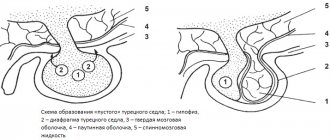Every day, 5 million Russians are haunted by a constant feeling of tiredness for no reason, lack of sleep, and excessive physical activity.
Everyone becomes their own doctor when they make a diagnosis of chronic fatigue syndrome. Is it the body or the brain to blame? That's the main question. If the state of constant fatigue goes away after 2-3 days of proper rest, then you should not think about what is happening. The alarm should be sounded when severe fatigue remains after a week-long vacation, colds come more often, headaches and muscle aches appear.
Proper food is a remedy against fatigue
A healthy and proper breakfast will help you cope with fatigue and recharge your energy for the day.
Feeling drowsy an hour after eating a bowl of pasta. Catch brain fog due to insufficient fluid intake. Eating only sweets, chips and processed foods and sinking into constant fatigue and drowsiness on the verge of depression. Six strategies will help you break the vicious circle:
- Have breakfast every day. People who eat in the morning feel better mentally and physically. Eating oatmeal for breakfast is associated with decreased levels of the stress hormone cortisol.
- Eat every three hours to maintain blood sugar levels. When it sharply decreases, weakness and fatigue sets in. Choose healthy snacks - vegetables, fruits, nuts, eggs, sugar-free yogurt, cottage cheese, low-fat cheese.
- Consume up to 25-30 g of fiber daily, as it helps to slowly saturate the body with energy, which helps get rid of constant fatigue.
- Nourish the brain with omega-3 fatty acids, which are found in nuts, flaxseed oil, and fatty fish. Acids prevent carbohydrates from being stored as fat and are used to replenish glycogen stores in muscles - energy.
- Hydrate cells with adequate fluid intake to thin the blood and nourish the body. If the urine is dark, then fluid intake should be increased.
- Avoid caffeine in the afternoon and limit your intake to 200-300 ml per day, which is equivalent to 2-3 cups of coffee. Excess caffeine reduces the quality of sleep and causes a constant feeling of fatigue. Drink green tea instead of coffee, which increases energy levels without adversely affecting the heart.
Start your morning with vigor! Add the juice of one lemon, two drops of mint essential oil and a spoonful of honey to a glass of water.
Anemia
Anemia (anemia)
- a condition characterized by a deficiency of red blood cells and a decrease in hemoglobin in the blood.
Hemoglobin
is an iron-rich protein that gives blood its red color. It helps cells transport oxygen from the lungs to the rest of the body.
The body of a person suffering from anemia simply does not receive enough oxygen, which is why one feels general weakness, fatigue, sudden changes in mood and “fog” in the head.
Common symptoms of anemia
Here are some of the most common symptoms of anemia that adults typically experience:
- fatigue, lethargy, lack of energy;
- pale skin;
- fast or irregular heartbeat;
- shortness of breath, breathing problems;
- chest pain;
- dizziness or loss of stability;
- decreased concentration;
- decreased body temperature;
- headache.
Treatment of anemia
First of all, the cause of regular fatigue should be clarified with your doctor. People tend to self-medicate, which is absolutely not worth doing.
Treatment of anemia can be either therapeutic or surgical. Therefore, you should not delay your visit to the doctor and turn a blind eye to general malaise.
Treating chronic fatigue with healing sleep
Daytime sleepiness, headache, fatigue, lack of attention may indicate poor rest at night.
Fatigue throughout the day can be eliminated by purchasing a new mattress. The spine bends excessively on a mattress that does not provide orthopedic support, breathing becomes shallow, the brain receives less oxygen and the nervous system becomes agitated. In the morning, a person suffers from an excess of stress hormones and adrenaline: irritability, cravings for sweets, apathy.
The right orthopedic mattress, selected according to the person’s age, height and weight, taking into account posture and health problems, will force the skeletal muscles to work and relax the large back muscles, which are usually compressed and overloaded. Blood will flow freely through the arteries and veins, the lower back will take a neutral position, and the pain will go away.
- For people with back pain, it is important to choose an anatomical mattress, but with good orthopedic support for the spine.
- Physically active people with a large body weight should not use a harder mattress in order to preserve the functioning of the spine.
- If you are slouched, you need to choose a medium-hard mattress with anatomical filling.
- A soft mattress is recommended for pain in the joints and muscles, and intervertebral hernias.
Professional help
If you cannot chronic fatigue
How to get tested for chronic fatigue?
Often complaints of this kind may not be perceived even by doctors, but an attentive doctor will certainly listen to the patient’s complaints, get acquainted with the history of the disorder and clarify information about the efforts made to normalize this condition. The doctor will probably advise you on a more harmonious diet or a vitamin and mineral complex that is more suitable for the individual characteristics of your body. Chronic fatigue is often classified by doctors as a vegetative-vascular or psychosomatic disorder, but the diagnosis is not limited to such formulations. Before making a professional conclusion, the doctor will prescribe a number of examination procedures:
- immunogram,
- Analysis of urine,
- blood tests - general, biochemical, hormone levels,
- 24-hour blood pressure test,
- scanning of the vessels of the neck and head (duplex transcranial),
- fundus examination,
- electroencephalogram,
- analysis for glucose, creatinine, electrolytes,
- CT or MRI,
- conversation with a psychologist,
- sometimes it is advisable to fully cooperate with a cardiologist, gastroenterologist and other specialized specialists.
What might be the diagnosis?
Hypovitaminosis. Diagnosed based on complaints or specialized blood tests. It usually manifests itself not only in decreased performance, but also in a weakened condition of the skin and nails, immunity, and digestive function. It is normalized by taking specific pharmaceutical analogues of vitamins and minerals, as well as by adjusting the diet. Although hypovitaminosis can occur without proper attention for a long time, sooner or later the condition can worsen. It is important to normalize the balance of substances necessary for the body at the earliest possible stage of deficiency.
Vegetovascular dystonia. This usually develops during puberty, that is, in adolescents. Dystonics are usually inactive and phlegmatic, but they can also be characterized by increased nervousness, hysteria, and hot temper. The diagnosis is not made only due to psychological or nervous abnormalities. Dystonia is a complex of psychosomatic dysfunctions, including pressure disorders, dizziness, and some features of digestion, impaired blood flow to the extremities, etc. A huge number of people live without even knowing about their diagnosis. A sufficient number of doctors do not consider it necessary to carry out specific therapy, especially since the etiology of the disorders is not always established and treatment cannot be etiotropic. However, it is wrong to ignore the malaise. Symptomatic treatment is usually prescribed, that is, suppression of the symptoms that bother a person, normalization of his well-being within the limits of what is possible. Medicinal treatment (often with herbal remedies), exercise therapy, massages, and hydrotherapy are also used. During certain periods, the condition of dystonics may worsen, and therefore it is necessary to contact a specialist again.
Pregnancy. Increased fatigue is often observed during pregnancy. It is important to exclude its pathological nature - it is important to report the nuances of your well-being to the doctor and undergo a thorough examination as prescribed. An alarming signal is a combination of fatigue in a pregnant woman with weight loss, dysfunction of any organs, increased blood pressure, toxicosis, disorders of the digestive system, pain in muscles and bones, itching, and sleep disturbances. If the doctor observing the pregnant woman does not note any physiological deviations from the norm, she can be advised to carefully monitor the state of her sleep:
- sleep 8-9 hours a day, best from 10 pm to 7 am;
- before going to bed, take a walk, go to the pool or do light exercises; ventilate the room; take a refreshing shower;
- before going to bed, drink 200 ml of slightly warmed milk with a spoon of honey, and for dinner, prefer a portion of boiled turkey, it contains the sleep-improving substance tryptophan, which improves sleep;
- for comfortable sleep, use several small pillows, placing them between the knees, under the lower back, or in some other convenient way;
- rest for half an hour after lunch
Among other things, it is important to minimize stress factors and adverse effects on the body during this period. The diet should be balanced and fortified - in particular spinach, apples, apricots, currants, rose hips, pomegranates, buckwheat, rye bread, carrots.
Asthenia. This is a mental disorder in which a person feels increased mental fatigue, body weakness, and emotional instability. Very often it manifests itself as dizziness, pain in the joints or muscles, excessive sensitivity to pain, intolerance to bright light, sounds, certain smells, vulnerability and anxiety, lethargy and apathy. If the disorder is not associated with a disease of the body, then we mean functional asthenia, which develops after severe shocks, after pregnancy and childbirth, and with the use of alcohol and drugs. Asthenia can develop while taking certain medications (hormonal, sleeping pills, antihistamines, antipsychotics, tranquilizers). If asthenic signs are combined with an increase in body temperature, fever, sweating, enlarged cervical lymph nodes, which lasts for months, this may be an alarming signal:
- cancer,
- encephalitis,
- infection with enterovirus, mononucleosis, adenovirus,
- metabolic disorders (including diabetes mellitus).
Psychological relief - a remedy against fatigue
Sadness, anger, anxiety, fear - emotions leave a heavy mark on your overall health and well-being. Correct work on emotions helps overcome burnout.
- Just add water. Freshen up, wash your face - this is the advice psychologists give, recommending water therapy against fatigue and to increase energy.
- Charge yourself with your own reflection or compliment. A fleeting glance in the mirror provides a boost of energy, like a compliment from the opposite sex.
- To throw out emotions so as not to allow your own endurance to be completely exhausted. Allow yourself to discuss fears, anger, the cause of stress and disappointment.
- Turn on your favorite music, which, according to psychologists, distracts from the feeling of fatigue.
- Let go of the grudge. By maintaining resentment, the body reacts with chronic stress, increases heart rate and blood pressure, suppresses the immune system, and reduces strength. By practicing forgiveness of offenders, you can regain full control of your body’s reactions and control stress.
- Master belly breathing. In a state of stress, shallow breathing through the chest predominates, which reduces the supply of oxygen to the brain and causes physical and mental exhaustion. Deep, diaphragmatic breathing with a rounded belly is a visual reminder that it is time to breathe and relax.
- Do some cleaning. Stop shuffling stacks of papers and searching through an overcrowded closet—clutter leaves you feeling out of control in your life. Cleaning is the achievement of a small but significant goal, which tones you up.
- Do something good. Acts of altruism channel happiness directly into the brain, increasing life satisfaction, self-esteem, sense of control, physical health and mood.
Types of fatigue
Fatigue can be physical and mental.
Physical fatigue is accompanied by muscle weakness and manifests itself in the fact that it becomes physically difficult for a person to do what he previously did without much strain. Even just walking up the stairs can be difficult. Its diagnosis uses tests to assess endurance (bicycle ergometer).
Mental fatigue is manifested by difficulty concentrating when performing mental stress. Often accompanied by drowsiness.
Despite the fact that both types of fatigue are different in essence, in practice they get along well together.
How to get rid of stress? Choose your relaxation technique
The reaction to stress determines the relaxation method that is most suitable for the person.
- Do you tend to get angry, worried or excited? Try relaxation techniques that allow the mind to cool down, such as meditation, deep breathing, or guided visualization - imagining yourself in a pleasant, relaxing place, reproducing sounds, smells, tactile sensations.
- Do you tend to become tired, withdrawn and sleepy? The body will respond to relaxation that stimulates and energizes the nervous system, such as rhythmic exercises - dancing, running, walking. You can simply use a rubber expander for your hand, rotate your head, or toss a tennis ball.
- Do you tend to feel anxious on the inside and become sluggish on the outside? You need to identify relaxation techniques that reset the nervous system, such as walking and power yoga.
When should you see a doctor?
If you have eliminated the most common causes of fatigue in your lifestyle (lack of rest, poor diet, stress), but have not seen any results and your fatigue continues for two weeks or more, you need to consult a doctor.
Here are 4 more good reasons to visit a doctor:
- You cannot explain the reasons for your fatigue;
- Your body temperature is higher than normal;
- You have trouble sleeping;
- You think you are depressed.
What questions, tests and tests can help determine the cause of fatigue?
In order to find out the cause of fatigue, you need to evaluate your lifestyle, the environment at work, the presence of concomitant diseases, and your psychological state.
Questions that can help in identifying the factors of fatigue
- How many hours do you sleep? When do you fall asleep, what time do you wake up?
- Do you wake up rested or tired?
- How many times do you wake up during sleep?
- Do you exercise regularly?
- Is your level of fatigue constant throughout the day?
- What changes have occurred in your life: in relationships, at work, at school, in your living conditions?
- How do you eat? How much do you drink coffee, eat sugar, or overeat?
- When do you feel most tired during the day?
- Is there a pattern to when fatigue occurs (time of day or time of year, such as holidays)?
- What is your emotional state? Are you happy/unhappy, satisfied/disappointed?
- What else bothers you besides fatigue? Fever, nausea, vomiting, stool upset, muscle pain, cough, thirst, appetite, weight loss or gain?
What tests need (can) be taken?
- General blood analysis;
- Blood chemistry;
- Blood test for hormones (for example, thyroid hormones (TSH, T3, T4));
- Pregnancy test, HIV test;
- FOGK;
- ECG;
- CT (if necessary)
Final diagnosis
Definitive diagnosis depends on identifying the underlying cause of fatigue; this is determined by evaluating the history, physical examination, and relevant test results.
Restorative rest is a remedy against fatigue
Energy, mood, productivity, and memory depend on a night's rest, because almost a quarter of Russian adults sleep little and have little knowledge of sleep hygiene:
- Reduce time spent at the computer or in front of the TV after 8 pm. Bright screen light can make it difficult to fall asleep because it suppresses the production of melatonin, the hormone that tells the brain it's nighttime. Turn off the Internet an hour before your expected bedtime, better read.
- Hide the alarm clock when falling asleep, stop monitoring how much time you spend in bed, as this causes anxiety. Conscious insomnia causes the brain to remain awake and impairs deep, restorative sleep.
- Reduce temperature. The bedroom should be comfortably cool to match your core body temperature, which drops at night. The ideal temperature is 20-23 degrees.
- Avoid alcohol, which depresses the nervous system, which controls the body's response to internal and external stimuli. Alcohol may have a sedative effect, but will cause you to wake up in the middle of the night. Alcohol disrupts the natural 24-hour biorhythm and increases blood pressure at night, when a person is usually relaxed and calm.
- Add physical activity. Aerobic exercise increases the duration of the deep sleep phase and reduces the number of awakenings. Strength training increases immunity, increases resistance to stress, which is important in modern life, helps you relax better and fall asleep faster.
- Put off worries until tomorrow. Throughout the day, keep a record of all stressors, take a minute to find explanations and solutions for them, and develop action plans. As soon as your head touches the pillow, you will know that all problems have been thought through for a long time, and this will help you relax faster.
Use the 15-minute rule for good sleep: if you haven’t been able to fall asleep within a quarter of an hour, you should do something relaxing - read, listen to meditative music, knit, but just don’t turn on the Internet! If you feel drowsy, immediately return to bed.
Fatigue: description
Fatigue itself is not a disease. Rather, it is the body's natural signal when it needs rest and quiet (for example, due to acute sleep deprivation) or when it is lacking certain nutrients.
It's another matter when a person is constantly tired and exhausted and perhaps even tends to “switch off” during the day. In addition, lack of drive, discomfort and decreased physical and/or mental performance are often added. These are all signs that something is wrong.
Who does this affect?
According to the World Society of General Medicine, about 31 percent of children over 16 say they sometimes or often suffer from fatigue—women more often than men. People from higher social strata and those living in partnerships are less likely to get tired.
Fatigue and sleep
Lack of sleep is often the cause of fatigue. But how much sleep does a person really need? This is very different individually - some people are born inactive, others usually come with less need for the amount of sleep.
Over the course of life, the need for sleep steadily decreases
Age also plays a role here: in the first three months of life, babies sleep on average about 17 hours out of 24 hours. This average sleep time drops to about 14 hours by the end of the first year of life. Two-year-old children need on average about 13 hours of sleep, and four-year-olds need about 12 hours. By age six, children typically have 11 hours of sleep.
Adults need less sleep to stay fit the next day: 40-year-olds typically sleep about seven hours a night. As you get older, sleepiness usually decreases. For example, healthy 80-year-olds typically get about six hours of sleep a night. But as mentioned, these are all guidelines. Everyone has their own need for sleep.
How to prevent fatigue?
Prevention of the root cause of fatigue in almost every situation is preventable by lifestyle.
What to change in your lifestyle
- Try to control your stress level and practice relaxation techniques;
- Exercise;
- Check with your doctor to see if your medications may cause fatigue;
- Balance your diet;
- Avoid overuse of caffeine and other stimulants;
- Quit smoking;
- Maintain a normal sleep schedule. Go to bed at the same time every night.
- Avoid drinking alcohol after dinner and reduce the total amount of alcohol you consume;
- Treat comorbidities.
What will help you feel less tired at work and at home?
- Planning and organization of work;
- Delegation of responsibilities: the help of family and colleagues is a lifeline that should not be abandoned;
- Take your time or hurry moderately;
- Take short, frequent breaks if necessary.
Did you like the post? Share information with your friends on social networks
What do you think about this?
Subscribe to the latest health, beauty and wellness news here.
- Related Posts
- How to quickly recover after the New Year holidays
- Good sleep: how to help yourself fall asleep quickly
- Caution: water. What do you know about healthy water?








